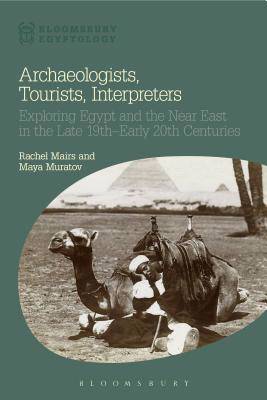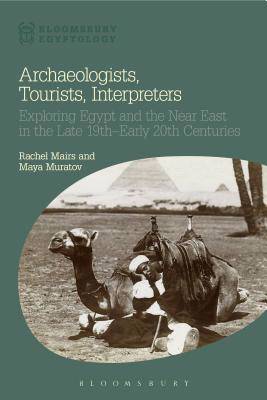
- Afhalen na 1 uur in een winkel met voorraad
- Gratis thuislevering in België vanaf € 30
- Ruim aanbod met 7 miljoen producten
- Afhalen na 1 uur in een winkel met voorraad
- Gratis thuislevering in België vanaf € 30
- Ruim aanbod met 7 miljoen producten
Zoeken
Archaeologists, Tourists, Interpreters
Exploring Egypt and the Near East in the Late 19th-Early 20th Centuries
Rachel Mairs, Maya Muratov
€ 162,45
+ 324 punten
Uitvoering
Omschrijving
In the late 19th and early 20th centuries, growing numbers of tourists and scholars from Europe and America, fascinated by new discoveries, visited the Near East and Egypt - attracted by the riches and mysteries of the Land of the Bible. Almost all such visitors, no matter how esoteric or academic their pursuits, had to deal with the local authorities and the native workforce for their archaeological excavations. The vast majority of these visitors had to rely on interpreters, dragomans, translators and local guides.
This study, based on published and unpublished travel memoirs, guidebooks, personal papers and archaeological reports of the British and American archaeologists, deals with the socio-political status and multi-faceted role of interpreters at the time. Those bi- or multi-lingual individuals frequently took on (or were forced to take on) much more than just interpreting. They often played the role of go-betweens, servants, bodyguards, pimps, diplomats, spies, messengers, managers and overseers, and had to mediate, scheme and often improvise, whether in an official or unofficial capacity. For the most part denied due credit and recognition, these interpreters are finally here given a new voice. An engrossing story emerges of how through their many and varied actions and roles, they had a crucial part to play in the introduction to Britain and America of these mysterious past cultures and civilizations.Specificaties
Betrokkenen
- Auteur(s):
- Uitgeverij:
Inhoud
- Aantal bladzijden:
- 160
- Taal:
- Engels
- Reeks:
Eigenschappen
- Productcode (EAN):
- 9781472588791
- Verschijningsdatum:
- 24/09/2015
- Uitvoering:
- Hardcover
- Formaat:
- Genaaid
- Afmetingen:
- 156 mm x 234 mm
- Gewicht:
- 403 g

Alleen bij Standaard Boekhandel
+ 324 punten op je klantenkaart van Standaard Boekhandel
Beoordelingen
We publiceren alleen reviews die voldoen aan de voorwaarden voor reviews. Bekijk onze voorwaarden voor reviews.







